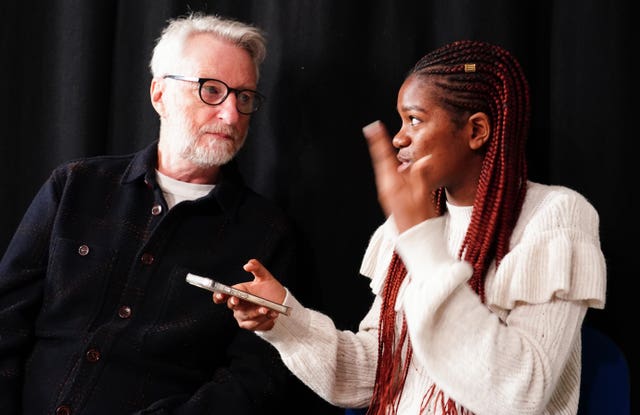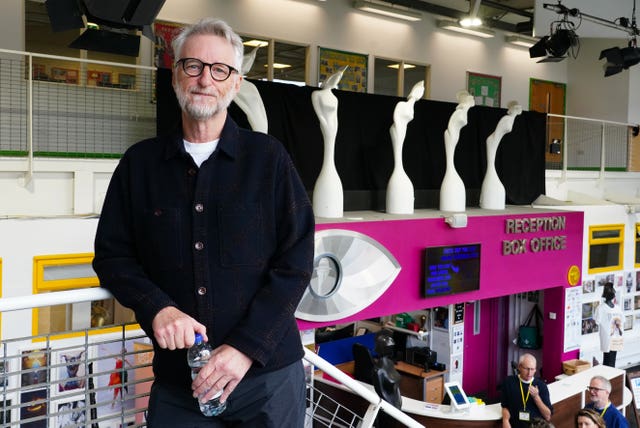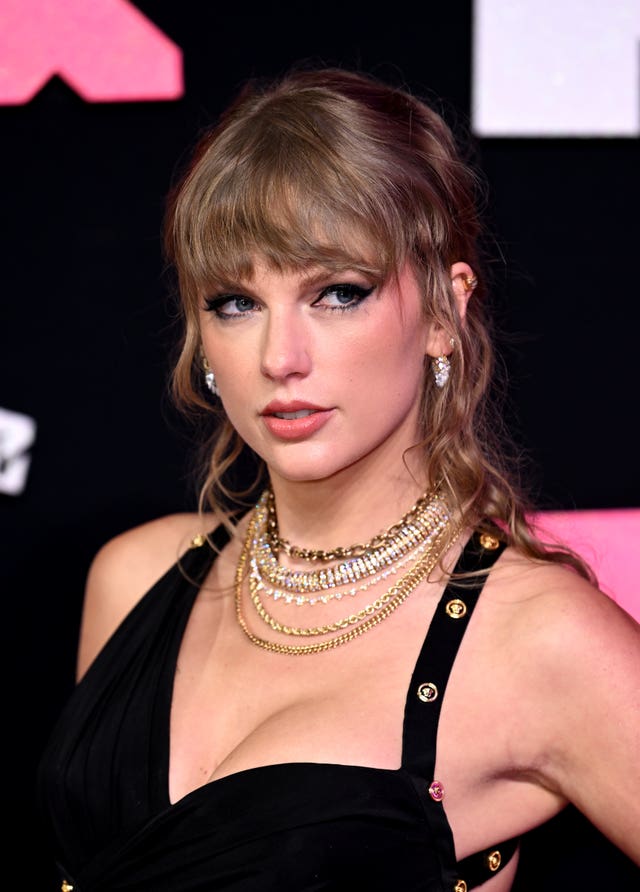Billy Bragg: Music cannot change Israel-Hamas conflict but it can inspire belief
The singer-songwriter was given a tour of The Brit School in London before speaking to a group of students.

Political singer-songwriter Billy Bragg said music cannot change “something so terrible” as the Israel-Hamas conflict but it can inspire belief that the world can be changed.
Bragg, 65, was given a tour around The Brit School in London on Tuesday and spoke to a group of students telling them that music has “no agency” after four decades of trying to change the world through his songwriting.
He said “the power that music has” comes from the audience expressing their solidarity with the song “not to be able to change the world, but to make you believe that the world can be changed”.

Referencing the Israel-Hamas conflict, Bragg later told the PA news agency: “You can’t change something so terrible as the current conflict that is going on in the Middle East, but you can at least add your voice to those who are asking for peace, those who are asking for respect for the lives of civilians.
“You can add your voice to that through music, and help other people who feel that way to express their solidarity through applause.”
Bragg, who is celebrating 40 years in the music industry, said the reason why musicians cannot believe they have the power to change the world is because “you’ll end up feeling you’ve failed”.
He told students at the performing arts state school: “You’ll end up feeling you haven’t made a difference, you’ll end up feeling like you tried everything (but) it didn’t overthrow capitalism, it didn’t stop the war in Ukraine – that’s not our job.
“Our job is to shine a light in those corners where people aren’t thinking about, our job is to reveal those hard truths that people don’t want to deal with, our job is to make them feel that they’re not alone.
“That’s why we write those songs, it is to offer an alternative image to the way we see the world and your perspective as the new generation is most important of all.”
Bragg also spoke receiving hate online for altering the lyrics to his 1991 hit Sexuality – which he wrote in allyship with gay people – to stand in solidarity with trans and non-binary people.

The original lyrics read “just because you’re gay I won’t turn you away, if you stick around I’m sure that we can find some common ground” but now on stage he sings “just because you’re they I won’t turn you away, if you stick around I’m sure that we can find the right pronoun”.
He told PA: “There’s a lot of anti-trans feeling out there, it seems to (have) become an issue. I think a lot of it is driven by the people who didn’t want to see gay marriage and they lost that fight and now they’re moving along the LGBTQ acronym to start on the next people.
“There are women who oppose aspects of this through their feminism, I happen to think they’re wrong, but it has encouraged me to understand more about the problems that women and girls face in terms of violence.
“My perspective of it is that the threat to women and girls and trans women really comes from the same place, and that’s male violence and that’s the thing we should be writing about.”
The Brit School headteacher Stuart Worden told PA that the lyric from the song inspired a theatre season titled Common Ground at the arts institution, while the students also take part in a protest day using their art form to “talk about what they believe in”.

Bragg said: “The fact that they can use something I’ve written makes me very proud. And also I hope it makes the young artists understand they’re not the first people to face these challenges because the world outside is a bit of a scary place.
“I was trying to make sense of it when I was in my teens using music, they’re now trying to make sense of it using art in the same way.”
The singer-songwriter also spoke about being a self-confessed “fan” of US pop superstar Taylor Swift having attempted to watch her new film during his trip to school – which has nurtured performers such as Adele and the late Amy Winehouse.

Bragg told PA: “It’s not easy to be a female artist in the music industry. It is still sadly, I have to say, a sexist industry, (it) has elements of racism in it as well.
“But Taylor Swift to me, I think she’s doing all these things on her terms, she’s going to have to make those compromises to get her music out in the world, to have the biggest tour in the world.
“She’s going to have to wear those skimpy, glittery costumes, but she seems to be doing it on her terms and as an artist I really relate to that.
“And I have a huge amount of respect, particularly with regard to her trying to own her own material.
“I own my own material and I recommend any other artists out there never to sign a life copyright deal because I’m now 65 years old and I still make the money from my records, it’s not some faceless person at a record company that I’m no longer signed to.
“I’m still making money from my own records, everyone should be able to do that.”





